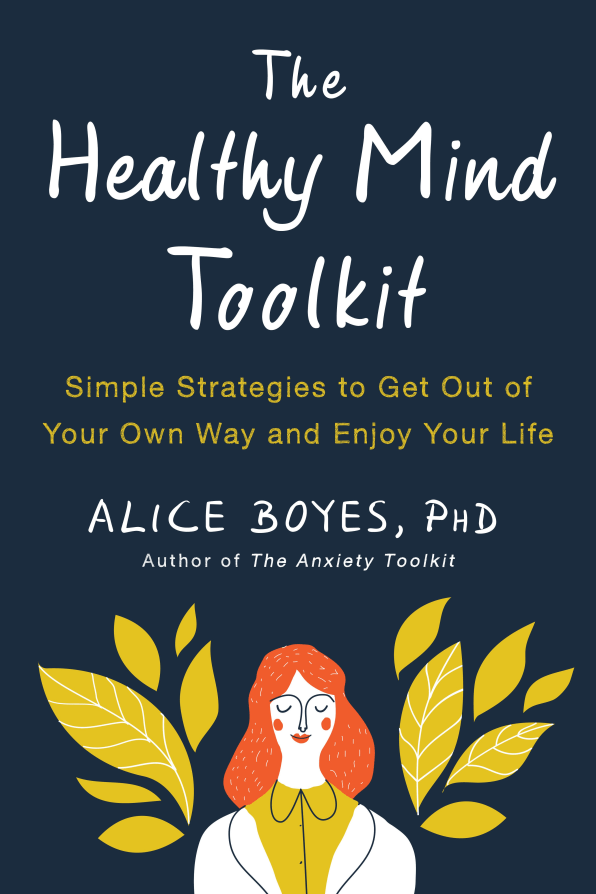7 Strategies For Conquering Procrastination And Avoidance
We’ve all experienced the nagging dread and anxiety that accompanies procrastination. Procrastination (avoiding specific tasks) and avoidance (a more general pattern) can also cause problems in relationships, especially if you make a habit of avoiding things or you routinely ask others to do things for you.
For anyone who feels like they’re getting in their own way, there’s a very high chance that avoidance is a big part of the problem. Avoidance creates stress, increases anxiety about whatever you’re avoiding, and sucks away at your self-confidence. Like perfectionism, avoidance creates a Catch-22. Having an avoidant coping style is self-sabotaging and can prevent you from overcoming self-sabotage. For example, a family member recently told me she avoids making to-do lists because she knows they work extremely well for getting her started on avoided tasks, and it feels easier to stay stuck.
We all have things we feel overwhelmed by. Therefore, everyone needs a personal toolkit of strategies for breaking through procrastination and avoidance. Here are some things you might want to try if you have the tendency to put off doing things that you really need to tackle.
Related: This Is How To Turn Procrastination Into A Management Technique
1. Write A To-Do List for Each Current Project, Rather Than Putting All Your Tasks On A Daily To-Do List
When you use a daily to-do list and circumstances hijack your day, it’s demoralizing to keep moving items over to your next day’s list. By writing all the actions you need to take for a particular project on a list just for that project, you can work through your tasks as you have time.
Project specific to-do lists also help you use scraps of time effectively. For example, if you have a spare five to 10 minutes, and there is a five-to-10-minute job on your list, you can quickly see that option. Save your daily to-do list for things that truly need to be done that day. For example, if tomorrow is trash pick-up day, then make sure that your list includes “take out the trash.”
2. Identify If A Self-Inflicted Rule Is Causing Your Avoidance
When you find yourself thinking, I have to do X to get this done, take a moment to check if that’s really true–or if it’s just a rule you’ve created for yourself. For example, say that you have the tendency to put off your Christmas baking until the very last minute. You have in your mind that you need to bake three types of cookies for Christmas. But who says Christmas requires three varieties and not one, two, or four? Can you simplify your expectations? Perhaps one type of cookie is fine.
Related: This Question Can Make Your To-Do List A Lot More Manageable
3. Decide Not To Do An Item That Has Been Hanging Around On Your To-Do List
The strategy of removing undone items from your to-do list gets back to the issue of prioritizing. For example, one of my hobbies is accumulating (and spending) miles and points for travel. There are a huge number of deals for earning extra miles that come along. It’s overwhelming to try and participate in all of them. It also has a big opportunity cost–because chasing small deals gets in the way of doing much more productive activities.
Yes, it can be difficult to decide not to do something that has some value–but isn’t a priority. However, it’s empowering and can give you the confidence boost you need to get unstuck with what is a priority. Decide to permanently not do something that’s on your to-do list. Identify a task that doesn’t have a great Return On Investment (ROI) and banish it from your to-do list forever.

4. Get A Boost By Boosting Someone Else
When people express positive emotions, they feel more positive emotions. For example, when you express enthusiastic happiness for a colleague or family member who has experienced a recent success, you get a boost, too. Why is this a strategy for overcoming avoidance? “Negative” emotions signal danger, whereas positive emotions signal safety. When we feel safer and the world seems like a kind and hospitable place, we’re more likely to explore. We’re wired this way through evolution. Exploring is the opposite of avoidance, and exactly what we’re aiming for.
5. Pretend You’re Going To Outsource The Avoided Task And Write Directions
If you’re avoiding a task, imagine that you’ve assigned it to another person. Write instructions that contain enough detail for someone else to successfully complete the task. How does this strategy overcome avoidance? There are a few different ways this works. Here are four:
6. Teach Some Aspect Of Whatever You’re Stuck With
The idea of teaching to bypass avoidance mostly applies to work tasks. Create educational material for your colleagues, employees, boss, or students (whatever applies in your situation.) For example, if you’re a programmer who’s avoiding doing a difficult or laborious coding task, you might write up a cheat sheet or make a video for how to do a related task you feel confident about in the most streamlined way possible.
Another take on this strategy involves teaching your child a skill. For example, if you’re avoiding something to do with money management, teach your child some financial concepts you’re confident with. Because actions affect thoughts and feelings, acting confident and competent will typically make related tasks feel much more within your capacity.
Related: Science-Backed Ways To Build Confidence When You Feel Like You’re Out Of Your League
7. Clear The Decks
Clearing the decks is one of my personal favorite strategies. If you’ve been avoiding a task for a while and it’s really important, try completely clearing your day. Make a deal with yourself that once you’ve done the action you’ve been putting off, the rest of the day is yours to do whatever you feel like.
Note that I don’t necessarily mean you’d spend 10 hours watching Netflix. You could do that, or you could do whatever productive work or personal tasks you felt like doing, and treat yourself to doing those tasks at a relaxed pace.
I recommend trying this strategy for when you have an extremely important job you keep putting off–like signing up for health insurance. You’re never suddenly going to enjoy this task, so you might as well get it done and give yourself a reward afterwards.
This article is adapted from The Healthy Mind Toolkit: Simple Strategies to Get Out of Your Own Way and Enjoy Your Life. It is reprinted with permission from TarcherPerigee.
(58)



